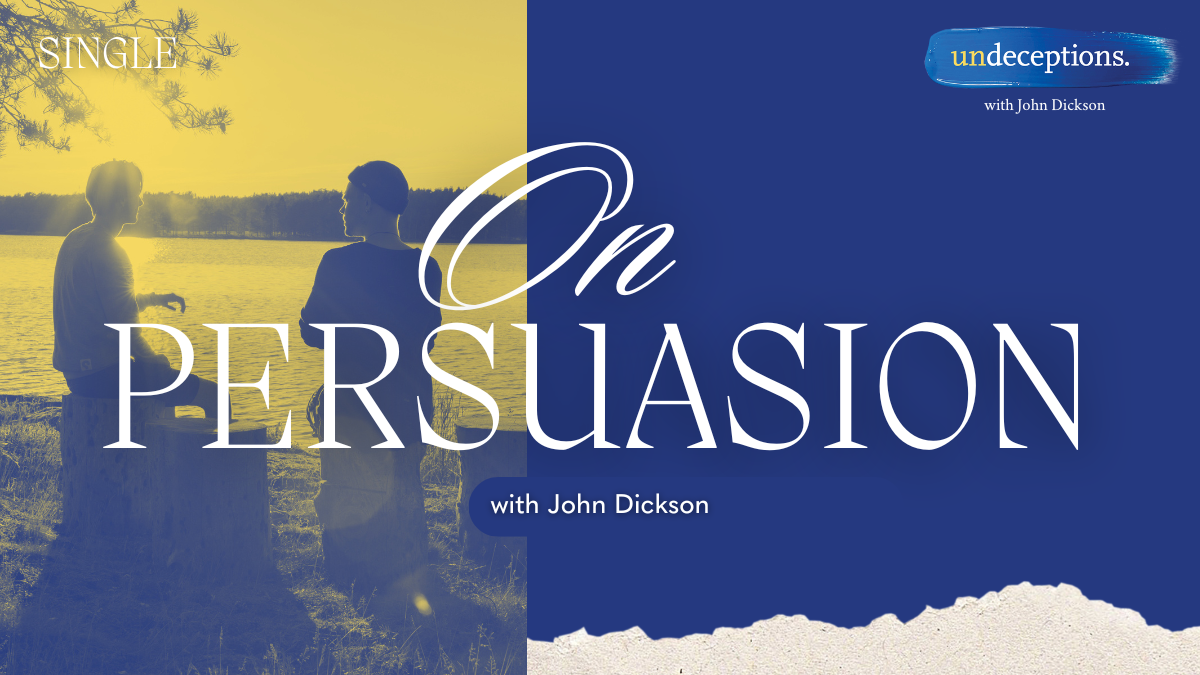Every topic, religion, or subculture has its vocabulary – and Christianity is no different.
Several words seem to only appear in Christian textbooks or articles (yes, there’s some irony to that sentence).
Phrases like “theological”, “eschatological”, “justification”, and “ecumenical” are just a few of the big hitters in the world of ‘Christianese’.
There’s an article in each of those words alone, but the focus for this one is on one of the most commonly used – and confusing – phrases: “hermeneutics”.
Put simply, hermeneutics is the science of interpretation.
It’s concerned with gleaning meaning from words, examining how they’re received in their context, and how the perceived sense of words can vary, depending on outside factors.
This great video courtesy of Ethan Renoe is a good intro to understanding hermeneutics
Kevin Vanhoozer is a world authority on Biblical hermeneutics, having spent most of his life teaching and writing on the subject.
According to him, hermeneutics “comes from the name of a Greek God Hermes, the messenger God, and there’s a verb in Greek hermeneuion, which means to interpret.
“So really it’s the study of how we interpret messages.”
Of course, the very notion that the Bible requires a hermeneutics expert raises a question: if this is God’s word, why is it so open to interpretation? Why do we need an intellectual giant like Kevin Vanhoozer to help us?
Well as it turns out, we’re all ‘doing’ hermeneutics in our day-to-day lives, often subconsciously.
“We have to interpret everything from baby’s cries to James Joyce’s Ulysses,” Vanhoozer said.
“It’s not just theology that does it.
“In the 20th century, it’s become, in a sense, a study of what it is to understand something – so we understand not only written texts, but we’re trying to understand our lives.”
So it’s not that we necessarily need help understanding The Bible (although assistance is always a good idea, especially with some of the more complicated books!)
Hermeneutics is something we all do – and experts like Vanhoozer take a deep dive into how we understand The Bible, and why we take certain conclusions from it.
Does this mean that there’s no objectivity to The Bible if we can be so easily swayed in our conclusions?
Not at all, says Vanhoozer.
With years of experience working in this field, he has developed some tips to help us get the fullest understanding of the scriptures.
Understand your reading culture
A reading culture isn’t concerned with how well someone reads words.
A reading culture is defined by the kind of questions people are encouraged to ask when reading.
When certain insights or moral values are privileged above others in a text, that’s a good clue to what kind of reading culture someone is operating in.
Is Snape in the Harry Potter series good or bad?
How do we make sense of Gloum in the Lord of the Rings?
How you answer those questions helps determine your reading culture.
“For someone interested in reading The Bible … what questions have they been told are the most important?”, Vanhoozer asks.
“Aristotle says, ‘If you want to succeed in something, you have to ask the right preliminary questions’, and different reading cultures have the right preliminary questions.”
Just being aware of our reading culture is a huge step to reading the Bible well.
It also leads us nicely to Vanhoozer’s next tip.
Understand your frame of reference
Similar to reading cultures, a frame of reference is concerned with the assumptions a reader brings to a text.
It’s concerned with how we deduce what a certain text is about.
Biblically speaking an easy example can be seen in how different people interpret the opening chapters of Genesis.
Is it a literal six-day creation? Or is the biblical creation account playing on a poetic formula, reworked in a certain way?
How we answer these questions will likely be heavily informed by our frame of reference.
Knowing our frame of reference also helps us be aware of any baggage we might be bringing to a text.
What has informed a hermeneutical expert’s own hermeneutic?
Check your grievances at the door
Because we’re so influenced by our reading cultures and frames of reference, it’s a hard task not to bring our ourselves to a Biblical reading.
But being aware of what our own biases are is crucial to helping us read the Bible well, says Vanhoozer.
“The notion that all I see in the text is what reflects my interests, to interpret in this or that way, … that deconstructs, subverts, and destroys any sense of biblical authority.
“This is what we do see quite a bit these days, what I would call advocacy hermeneutics, people reading the Bible in ways that suit their interests or the interests of their tribe.”
Breaking down barriers, and reading the Bible with other people – or at least hearing what other people take from it – is ultimately the key to getting the most out of a Biblical text.
How someone else’s reading culture and frame of reference enables them to read The Exodus narrative, or Jesus’ feeding of the 5000 can help others find new dimensions to God’s word.
In this way, collaborative hermeneutics is one of the healthiest activities we can be doing if we want to get the most out of the Bible.
“The Holy Spirit speaks through many languages, and we need people from different countries speaking different languages with different pairs of eyes,” Vanhoozer concludes.
“We‘re more likely to be objective and transcend our self-interest if we do that.
“In a sense, that’s what the church is.”
Adapted by Alasdair Belling from the Undeceptions episode ‘Bible Unlocked’ with Kevin Vanhoozer. Listen here


Want to be further undeceived?
Check out our network of podcasts and articles in the Undeceptions Library.















































